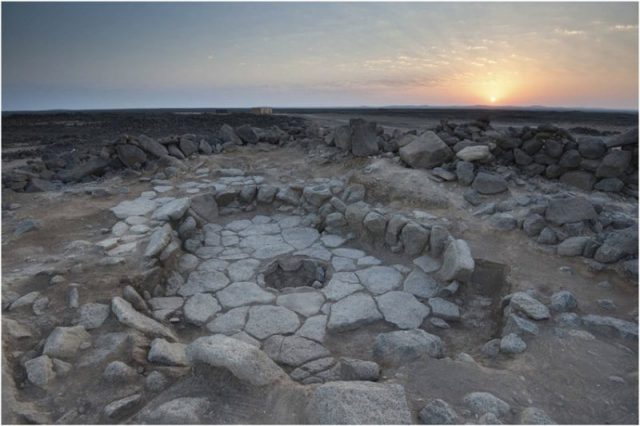|
|
Post by Hoosier X on Jan 13, 2019 14:45:06 GMT -5
Franklin Pierce was boyhood friends with Nathaniel Hawthorne. For a short time, his law partner was Mary Baker Eddy's father. When he was elected to the Senate in 1837, he was (at 33) the youngest person in the Senate at the time. He was something of a tool for the Slavocracy. He is really harsh on the abolitionists. He repeats slave state talking points at the drop of a hat. Stuff like "The Abolitionists are causing the South to get defensive, and thus they are slowing down the progress of freedom for the slaves. It will happen naturally but not if they keep on agitating." (Not an exact quote.) And also "Imagine if the millions of uneducated helpless blacks are abandoned to the cruel state of freedom! They will freeze in the winter." (Also not an exact quote.) I just read about Pierce's Mexican War experiences a few days ago. Very interesting. I'm about 200 pages into it and reading about the period between the end of the war and the beginning of his presidency. It's presenting all the steps in how Pierce became president. (Although you have to take it with a grain of salt because the book is so old. It's probably reasonably accurate.) I’m pretty well versed in US Presidents, but Pierce is one I don’t know a lot about. I’m always a bit skeptical of history books of that vintage. I’ll have to take a look at it. I would much rather have a 500-page biography of Franklin Pierce from the 1990s or later. But all the more recent bios I found were rather brief. This book has quite a few relevant quotations from letters and newspaper editorials and things like that. I'm not sure that I buy the portrait of Pierce as a local politician called to serve as president against his will by enthusiastic friends and admirers with no real ambition for the post on his part. But I see no reason to doubt things like party factions and controversial issues and so on when they are supported by quotations from the period. And it's also kind of hard to sort out the charges of cowardice in the Mexican War. I tend to believe the book's version of events and Pierce was defended by a lot of high-up figures in the military. But if you look at it objectively, it seems like Pierce was thrown from his horse or otherwise injured at the start of so many battles that you start to wonder. |
|
|
|
Post by Prince Hal on Jan 15, 2019 15:15:32 GMT -5
I've read several fine narrative histories by Hampton Sides, including In the Kingdom of Ice, Ghost Soldiers, and Hellhound on his Trail. I'm returning to Blood and Thunder soon; just didn't have the time to finish it when I first started it years ago. (I loved what I read there, too.)
Just finished On Desperate Ground, about the battles around the Chosin Reservoir in the first months of the Korean War. Excellent in many respects. (More maps needed, though.)
Not really revisionist history, though it certainly illustrates, as if much more proof were needed, what a narcissistic bunghole MacArthur was, and brings to the fore the leadership skills of the often overlooked and forgotten general Oliver Smith and puts in a more realistic perspective the lack of same in his commander, Ned Almond.
Sides' descriptions of combat are right up there with the most frightening and memorable I've ever read. How these Marines and soldiers made it through ten minutes, let alone the two weeks of frozen hell they endured staggers me.
Also highly recommended on the Korean War is Bruce Cumings' slim, but trenchant and cogent The Korean War: A History.
|
|
|
|
Post by Slam_Bradley on Jan 15, 2019 15:34:16 GMT -5
I've read several fine narrative histories by Hampton Sides, including In the Kingdom of Ice, Ghost Soldiers, and Hellhound on his Trail. I'm returning to Blood and Thunder soon; just didn't have the time to finish it when I first started it years ago. (I loved what I read there, too.) Just finished On Desperate Ground, about the battles around the Chosin Reservoir in the first months of the Korean War. Excellent in many respects. (More maps needed, though.) Not really revisionist history, though it certainly illustrates, as if much more proof were needed, what a narcissistic bunghole MacArthur was, and brings to the fore the leadership skills of the often overlooked and forgotten general Oliver Smith and puts in a more realistic perspective the lack of same in his commander, Ned Almond. Sides' descriptions of combat are right up there with the most frightening and memorable I've ever read. How these Marines and soldiers made it through ten minutes, let alone the two weeks of frozen hell they endured staggers me. Also highly recommended on the Korean War is Bruce Cumings' slim, but trenchant and cogent The Korean War: A History. I have all of those on my "to read list." Which is pretty meaningless because there are about 7200 books on my "to read list." But it's technically possible I'll get to one or more of them some day. |
|
|
|
Post by Slam_Bradley on Jan 15, 2019 20:47:47 GMT -5
Watched Ken Burns' second documentary The Shakers: Hands to Work, Hearts to God (1984). Burns indicated that he chose the subject, in part, because his first film was on an urban subject and this was a rural subject. Burns looks at the Shaker religion, from its beginnings in England to its period of greatest strength during the Second Great Awakening to the state of the religion at the time of the documentary in the early 80s (around 17 members).
Looks-wise this is vintage Burns. You can see his eventual style coming rapidly into focus. Subject-wise it is interesting though not really the sort of thing I would necessarily seek out. It is interesting to see a religion in that time period that was founded by a woman and had general equally between the sexes. Of course commitment to celibacy is not a recipe for a thriving religion. As best I can discern there are an estimated two members left.
Interesting stuff.
|
|
|
|
Post by Slam_Bradley on Jan 29, 2019 18:58:16 GMT -5
Watched a documentary on Edward VII. Believe it was done by the BBC for their Timeline series. I'm pretty well versed in British history, but this was a bit of a blank spot for me. So it was cool to get at least some insight. Very interesting time period world-wide in the build up to The Great War. Well worth a look.
|
|
|
|
Post by Prince Hal on Jan 30, 2019 10:25:26 GMT -5
Watched a documentary on Edward VII. Believe it was done by the BBC for their Timeline series. I'm pretty well versed in British history, but this was a bit of a blank spot for me. So it was cool to get at least some insight. Very interesting time period world-wide in the build up to The Great War. Well worth a look. Edward was the Prince Charles of his day, waiting not so patiently for his mother to die so that he could finally take over. Compared to Charles, though, he's a piker... was crowned when he was 60. Poor Chuck is already 70. It was also his son Prince Albert Victor, aka "Eddy," who has been mentioned from time to time as having been the "real" Jack the Ripper. Q.v. Murder by Decree (1979), in which Christopher Plummer plays Sherlock Holmes solving the mystery. The Prince also is a character in From Hell by Alan Moore and Eddie Campbell. maybe the movie, too. Can't recall. |
|
|
|
Post by beccabear67 on Jan 31, 2019 16:02:48 GMT -5
There was a well thought of '70s drama series in England centered on Edward VII, and he also appeared in one that followed about Lillie Langtry (and also one early episode of Upstairs-Downstairs). www.imdb.com/title/tt0072925/ |
|
|
|
Post by Prince Hal on Jan 31, 2019 16:19:27 GMT -5
There was a well thought of '70s drama series in England centered on Edward VII, and he also appeared in one that followed about Lillie Langtry (and also one early episode of Upstairs-Downstairs). www.imdb.com/title/tt0072925/And is also supposedly the subject of Holmes' investigation in "A Scandal in Bohemia," disguised as "Wilhelm Gottsreich Sigismond von Ormstein, Grand Duke of Cassel-Felstein." |
|
|
|
Post by Slam_Bradley on Feb 9, 2019 14:51:48 GMT -5
Had a bit of time and back-tracked to the first episode of Battlefield Britain: Boudicca's Rebellion Against the Romans. The Snows look at the Iceni revolt of 60 A.D. Again this is a fairly basic overview of the causes of the revolt and the course of the warfare. Boudicca struck at the perfect time and was able to have great success as the Roman Legions based in Britain were isolated from each other and generally well away from East Anglia (recognizing the anachronism of that term) at the time they struck. The final battle is a textbook example of a small disciplined force properly using favorable terrain defeating an immensely larger undisciplined force.
|
|
|
|
Post by Slam_Bradley on Mar 3, 2019 15:28:33 GMT -5
Ancient Egyptian sandstone workshop found. The workshop dates to the time of Amenhotep III (King Tut's grandfather). Included in the find is a Criosphinx (ram-headed sphinx) which I find to be incredibly cool. 
|
|
|
|
Post by Prince Hal on Mar 3, 2019 17:14:32 GMT -5
|
|
|
|
Post by Slam_Bradley on Mar 18, 2019 10:09:13 GMT -5
|
|
|
|
Post by Rob Allen on Mar 19, 2019 14:10:41 GMT -5
Herodotus was right! www.theguardian.com/science/2019/mar/17/nile-shipwreck-herodotus-archaeologists-thonis-heraclion"In the fifth century BC, the Greek historian Herodotus visited Egypt and wrote of unusual river boats on the Nile. Twenty-three lines of his Historia, the ancient world’s first great narrative history, are devoted to the intricate description of the construction of a “baris”. For centuries, scholars have argued over his account because there was no archaeological evidence that such ships ever existed. Now there is. A “fabulously preserved” wreck in the waters around the sunken port city of Thonis-Heracleion has revealed just how accurate the historian was." |
|
|
|
Post by Jesse on Mar 23, 2019 12:00:29 GMT -5
|
|
|
|
Post by Slam_Bradley on Mar 23, 2019 14:16:55 GMT -5
That is a super interesting article. I'd never thought about it, but that makes a lot of sense. |
|





